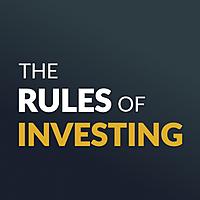Equities up, bonds behaving but what is the US dollar telling investors?
Markets are forward looking and are one of the strongest indicators of what lies ahead for global economies. This dynamic reflects the thinking of millions of market participants digesting and pricing available information to guide how asset prices reflect the future.
For all the twists, turns, and curveballs that 2025 has delivered, markets are, in many cases, at or above where the year started. The S&P 500 is in the green, the ASX 200 is up, and yields on US 10-year bonds, a useful proxy for risk appetite, are lower than at the start of the year.
At face value, you might conclude that investors are more confident about the economic outlook, or at the very least more comfortable than they were in January.
But not all signals are flashing green. A 10% fall year-to-date in the safe-haven US dollar is one example that warrants closer inspection. That’s the view of Fidelity International’s Chief Investment Officer of Equities, Niamh Brodie-Machura, who oversees a team of more than 120 analysts managing over $220 billion for Fidelity clients.

Brodie-Machura says a handful of developments through 2025 could have knock-on effects for economic growth, particularly in the US.
While it's too early to fully assess, she argues we are entering a new era of trade friction. Whether that turns out to be grit in the system or fistfuls of concrete is yet to be determined.
“It is certain that trade is going to be more difficult, more expensive on a go-forward basis. And what does that mean? That's inflationary and that's negative for growth.”
The narrative around US fiscal policy has also flipped. At the start of 2025, it was all about austerity and cutting waste. With the Big Beautiful Bill on the table and DOGE a distant memory, higher deficits and rising debt-to-GDP levels now seem inevitable.
Escalating conflict in the Middle East is also having an impact, pushing oil prices higher and further fuelling inflation.
These concerns were reflected in last week’s US Federal Reserve update, which revised its growth forecasts lower and its inflation expectations higher.
While hard data like unemployment suggests the US economy is still humming along, Brodie-Machura says the outlook has become more muddied, broadening the range of outcomes for investors.
“When you pull all of that together, equities, bonds, they look quite sanguine relative to where we were at the start of the year. We have some new market-relevant information that I think investors should be incorporating in terms of the risk that they price into their assets.”
We’ve been trained to buy the dip
As humans, it's natural to seek comfort during uncertainty - we’re creatures of habit.
Owning US equities has been a winning strategy in recent decades. Brodie-Machura says investors are defaulting to a "buy the dip" mindset that’s worked before. But are the drivers of US growth changing? Are investors looking in the rear-view mirror instead of the road ahead?
There are three notable structural shifts that Brodie-Machura believes could mark a regime change in economic growth drivers investors have enjoyed in recent history.
- Globalisation: Once a widely supported engine of global growth, globalisation has stalled and may begin to unwind or reshape dramatically.
- The war for talent: The US has historically attracted top global talent. That edge may be eroding. “I don't think it's controversial to say that the US is clearly less welcoming than it was in the past to talent,” she says. There’s also the prospect of additional taxes on foreign capital.
- Central bank firepower: From the GFC to the pandemic, central banks have helped offset economic shocks. But with rising debt and a weaker US dollar, Machura questions whether they have the same firepower today.
This isn’t a case of writing off US equities. Rather, Brodie-Machura argues long-term investors should broaden their horizons.
“It is right to look outside the US. We need to be balanced and think about the ability for other countries to outperform.”
Global opportunities
Drawing on Fidelity’s deep research base, Brodie-Machura sees positive signs in Europe and emerging markets, both showing improved earnings outlooks and more attractive valuations.
“In Europe, one of the important dynamics is that the continent is coming together better than it has in the past."
"But I think possibly more importantly, there is an understanding of the need for a growth dynamic and the need for self-funded investment in infrastructure in areas like defence.”
She also sees promise in Japan. Long considered an underperformer, the early stages of reform are creating a “self-help” story. It may take years to play out, but Brodie-Machura believes it’s worth watching.
In a complex environment, now is not the time to back investment ideas that don't require heroic assumptions.
“I think investors need to check and double check their assumptions and really be confident about the expected return that they can achieve across their investments.”
Click the player at the top of this wire to listen to the full Rules of Investing episode.
This podcast has been prepared without taking into account any person’s objectives, financial situation or needs. It is provided for general information purposes only and is not intended to constitute advice of any kind. You should consider the relevant PDS and TMD for any Fidelity Australia product mentioned before making any investment decisions, available at (VIEW LINK).
2 contributors mentioned


